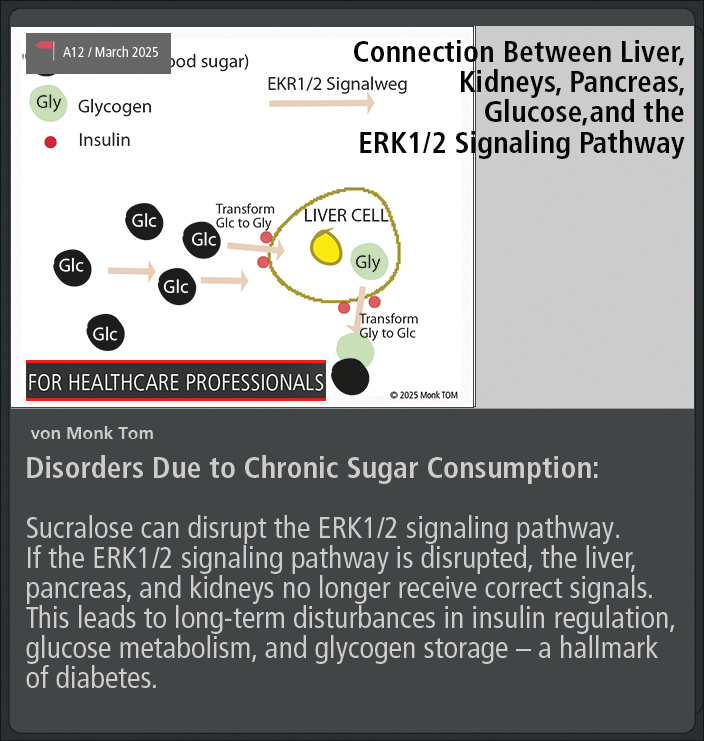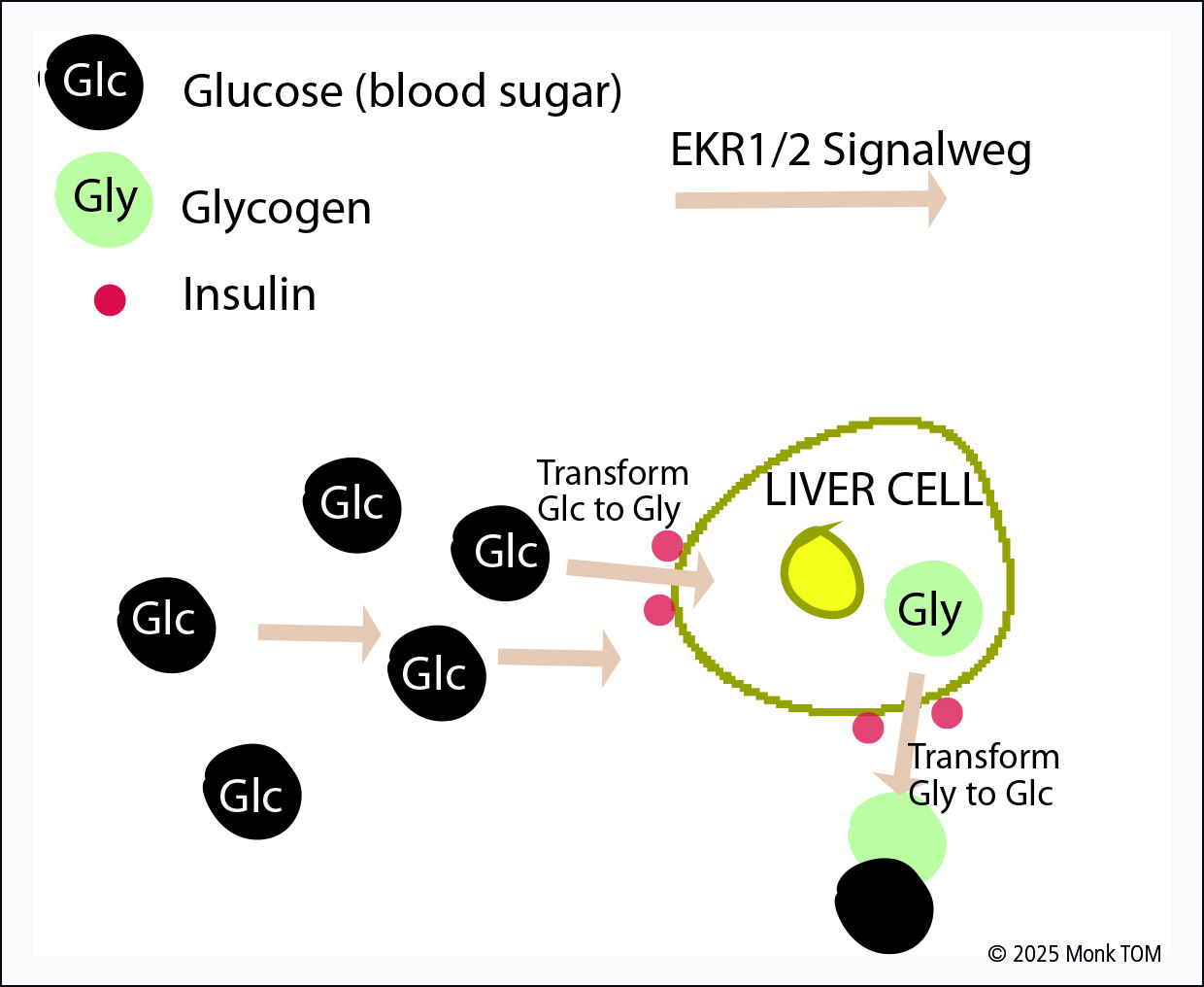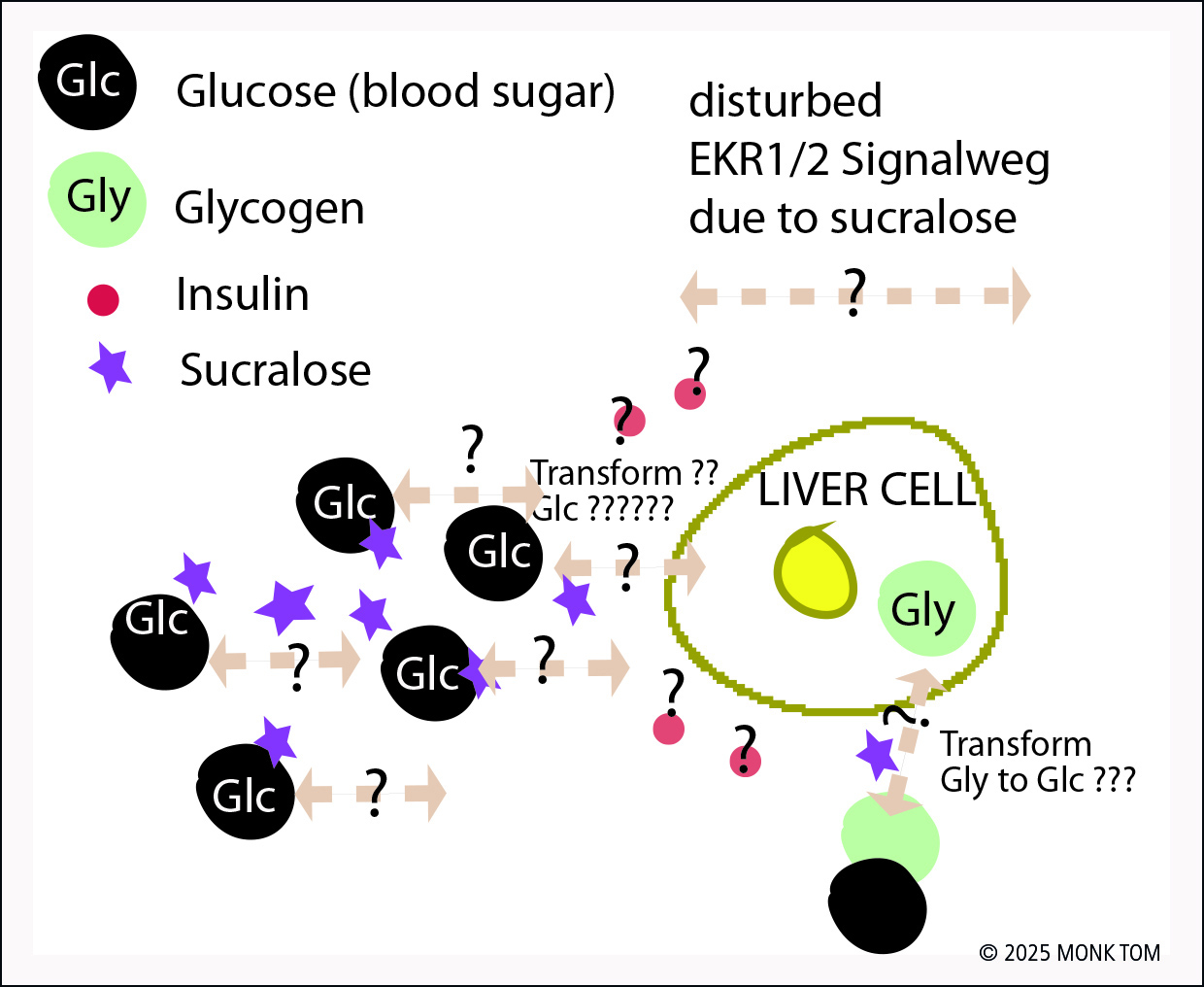CONNECTION BETWEEN LIVER, KIDNEYS,
PANCREAS, GLUCOSE, AND THE ERK1/2 SIGNALING PATHWAY


By Monk Tom


1. Glucose (Blood Sugar):
• Glucose is a simple sugar and the primary energy source for the body's cells, especially for the brain and muscles.
• After a meal, glucose from the digestion of carbohydrates enters the bloodstream, leading to an increase in blood sugar levels. The pancreas then releases insulin.
• Insulin binds to its receptors on cells and activates, among other things, the ERK1/2 signaling pathway. This pathway is propagated through a cascade (a kind of chain reaction) of enzymes and proteins. At the end of this process, ERK1/2, a specific enzyme, is activated, migrates into the cell nucleus, and regulates genes.
2. Role of the Pancreas:
• The pancreas produces the hormone insulin when blood sugar levels rise.
• Insulin enables body cells to absorb glucose from the blood and use it as energy.
• Insulin also signals the liver to store excess glucose in the form of glycogen.
3. Role of the Liver:
• The liver plays a central role in glucose metabolism. It absorbs glucose from the blood and converts it into glycogen (glycogenesis).
• The ERK1/2 signaling pathway activates genes that are important for the synthesis and breakdown of glycogen. This allows the liver to flexibly adapt glucose metabolism to the body's needs.
• When blood sugar levels drop (e.g., between meals or during physical activity), the liver converts stored glycogen back into glucose and releases it into the bloodstream (glycogenolysis). This keeps blood sugar levels stable.
4. Role of the Kidneys:
• The kidneys filter the blood and play an important role in regulating water and electrolyte balance. They also contribute to maintaining a constant blood sugar level.
• When blood sugar levels are very high, the kidneys can excrete glucose through urine (glucosuria). In cases of low blood sugar, the kidneys can also convert glycogen into glucose and release it into the bloodstream.
5. Summary of the Cycle:
• Too much glucose in the blood → Pancreas produces insulin → Liver and cells absorb glucose → Excess glucose is stored as glycogen in the liver.
• Too little glucose in the blood → Liver and kidneys convert glycogen into glucose → Blood sugar levels normalize.
6. Disorders Due to Chronic Sugar Consumption:
• Excessive consumption of sucrose or other sugar sources can lead to chronically elevated blood sugar levels over time. This strains the ERK1/2 signaling pathway and other metabolic processes, increasing the risk of insulin resistance and diabetes.
• "According to a study published in the journal Nutrients , sucralose can disrupt the ERK1/2 signaling pathway."
• If the ERK1/2 signaling pathway is disrupted, the liver, pancreas, and kidneys no longer receive correct signals. This leads to long-term disturbances in insulin regulation, glucose metabolism, and glycogen storage – a hallmark of diabetes.
• "The ERK1/2 signaling pathway is not only important for glucose metabolism but also regulates other cellular processes such as cell growth and repair. Disruption of this pathway can therefore have far-reaching effects on the entire body."
